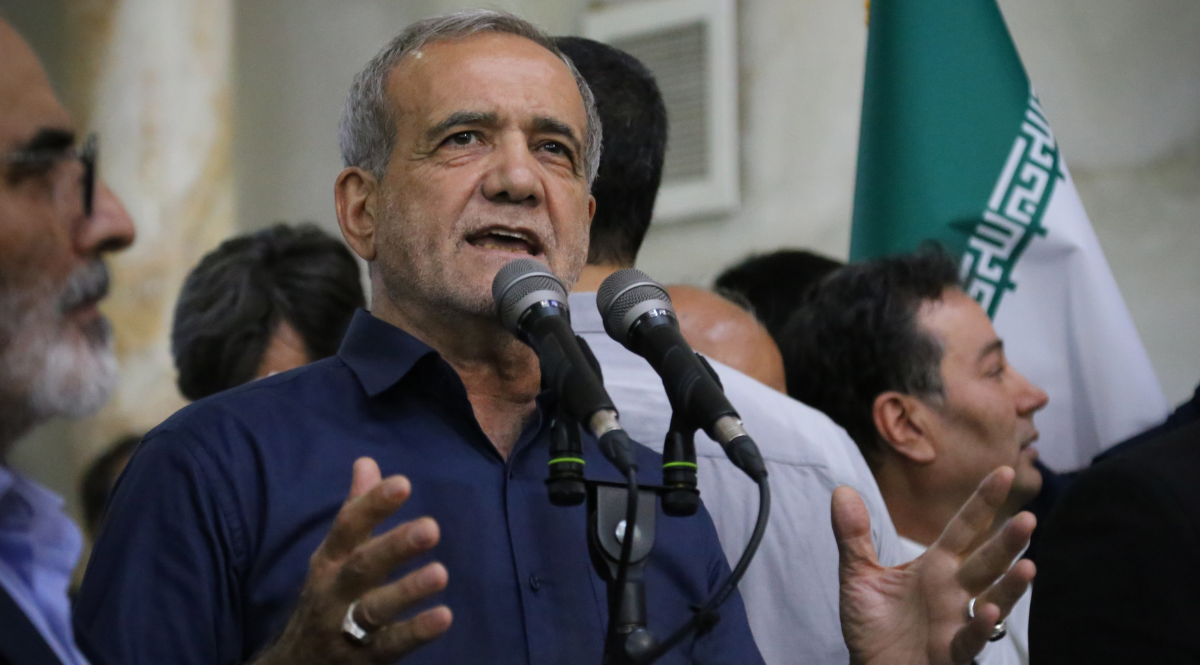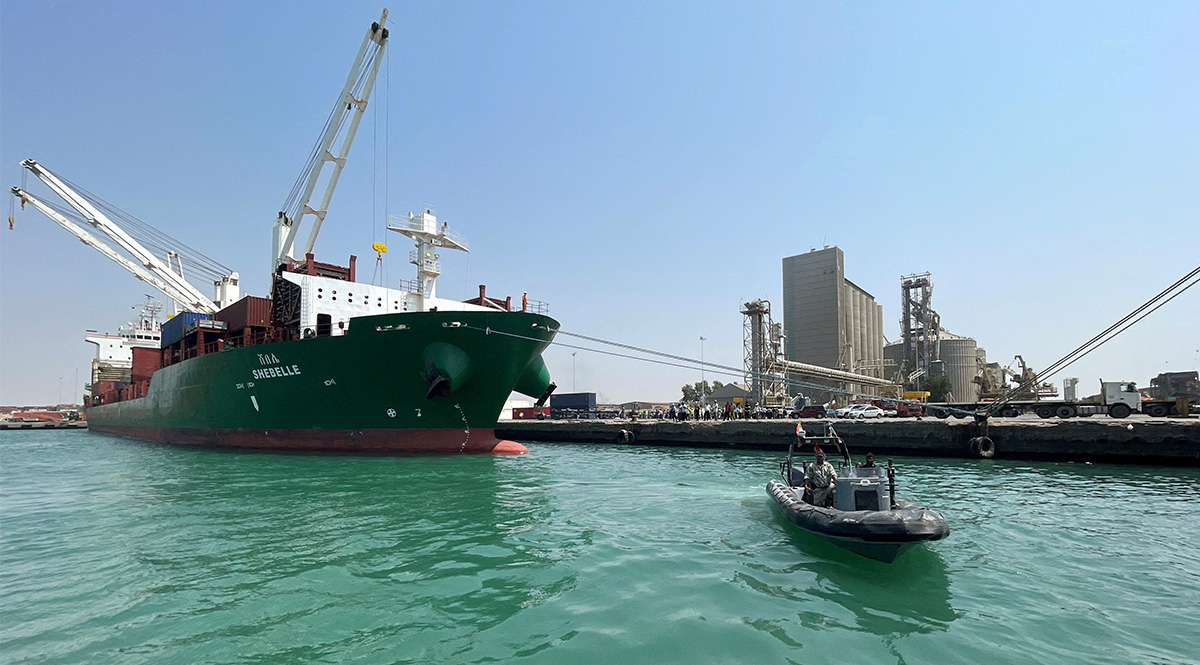Pezeshkian Elected President of Iran
Reformist Masoud Pezeshkian defeated hardliner Saed Jalili in the second round of Iran’s presidential election on 5 July. His win comes as a surprise and is an expression of Iranians' dissatisfaction with the economic and social situation in the country, as well as with its foreign policy. The low turnout signalled disapproval of the system altogether. The president-elect promises to improve relations with the West and institute pro-social domestic reforms. His room for manoeuvre, however, will be limited by the opinion of the Supreme Leader and the growing strength of the Islamic Revolutionary Guard Corps (IRGC).
 Rouzbeh Fouladi / Zuma Press / Forum
Rouzbeh Fouladi / Zuma Press / Forum
How did Pezeshkian win?
Although elections in Iran are not free (candidates are approved by Supreme Leader Ali Khamenei), Pezeshkian’s win could not have been orchestrated by the regime, reflecting two genuine trends. The first is the negative assessment of the policies of the previous president, Ebrahim Raisi, who died in a plane crash on 19 May, which were conservative inside Iran and confrontational towards the West. In the second round, 10% more voters than in the first round, or around 6 million Iranians, mobilised to prevent Raisi’s policy continuator, Saed Jalili, from becoming president. Second, the approximately 20% lower turnout—30 million Iranians did not vote at all—than in previous elections may show disapproval of the entire Islamic Republic system. Public sentiment was most affected by the bloody crackdown on demonstrations following the 2019 petrol price increase and the crackdown on women’s activism following the death of Mahsa Amini in 2022. Pezeshkian, a mild-mannered cardio surgeon and former health minister, promises to reduce inflation, take care of the poorest Iranians, loosen internet blockades, and disband the morality police, which could de facto mean abolishing the obligation for women to cover their heads.
Will his election change Iranian foreign policy?
Pezeshkian stood out from his rival candidates in foreign policy, proclaiming that “in a cage you cannot grow”. His aim is to get sanctions lifted and improve relations with the West. However, the president’s key decisions must be accepted by Khamenei. The Supreme Leader does not want open conflict with Israel or the U.S. He may give Pezeshkian a bit of time to demonstrate whether a policy of improving relations will lead to the lifting of sanctions. However, if this fails, Iran will return to the path of confrontation with the U.S. and Europe. Until the U.S. presidential election in November, an intense de-escalation of tensions in the Middle East is to be expected from both Iran and the Biden administration.
Pezeshkian will not have sovereignty over the IRGC. It’s assessed that the organisation controls more than half of Iran’s economy, its nuclear and ballistic missile programmes, and its support system for pro-Iranian armed groups in Lebanon, Syria, Iraq, Palestine, and Yemen. The IRGC’s power is controversial and publicly debated in Iran, and it is possible that Khamenei himself wants to curb it, in which case Pezeshkian may be a means to that end. However, the IRGC may deliberately obstruct the president’s decisions in order to discredit him, leading to inconsistencies in foreign policy.
What does the election mean for the EU, including Poland, and for Ukraine?
The nuclear agreement with Iran (JCPOA) expires next year and its European state parties Germany, France, and the UK, as well as the U.S., can expect proposals from Iran to renegotiate it. A close advisor to the president-elect is Mohammad Javad Zarif, a former foreign minister and JCPOA negotiator popular on English-language social media. Much, however, depends on the outcome of the U.S. election. Iran’s nuclear programme, declaratively peaceful, is at an advanced stage of uranium enrichment, although it has not entered the weaponisation phase, according to U.S. and Israeli intelligence.
For the EU, Pezeshkian’s priority to lifting sanctions is a good signal. It means that Iran may be prepared to sacrifice other components of its foreign policy, such as the relations with Russia, ever closer in recent years, which are not of strategic importance like those with China. Putin congratulated Pezeshkian on his win in a somewhat threatening tone. Iranian society is anti-Russian. Iran declares neutrality in Russia’s war against Ukraine and emphasises Ukraine’s right to territorial integrity, although it supplies Russia with military equipment. The EU should take advantage of these declarations and condition an improvement in relations with Iran on a halt to the supply of Iranian drones and other armaments to Russia. Poland, which has better relations with Iran than several Western European countries and very good relations with Ukraine, can play an important role here.





